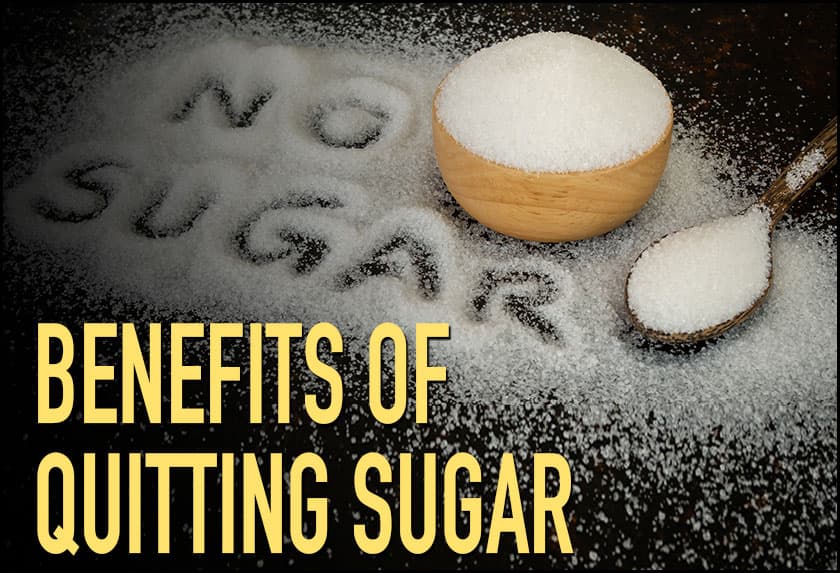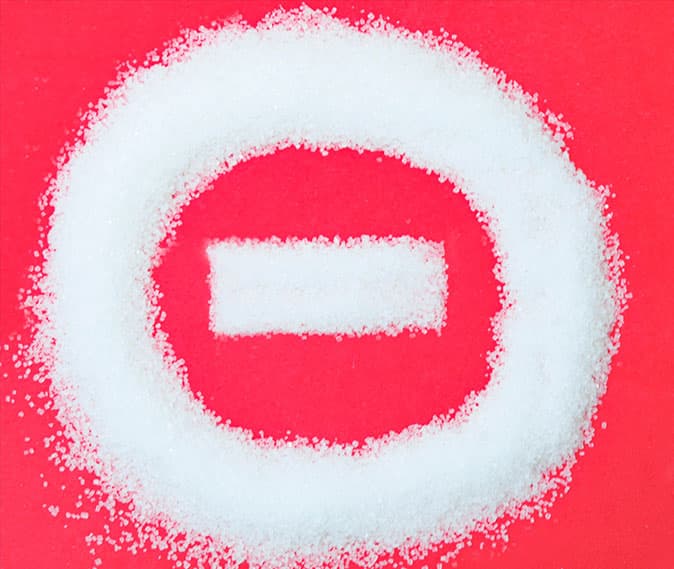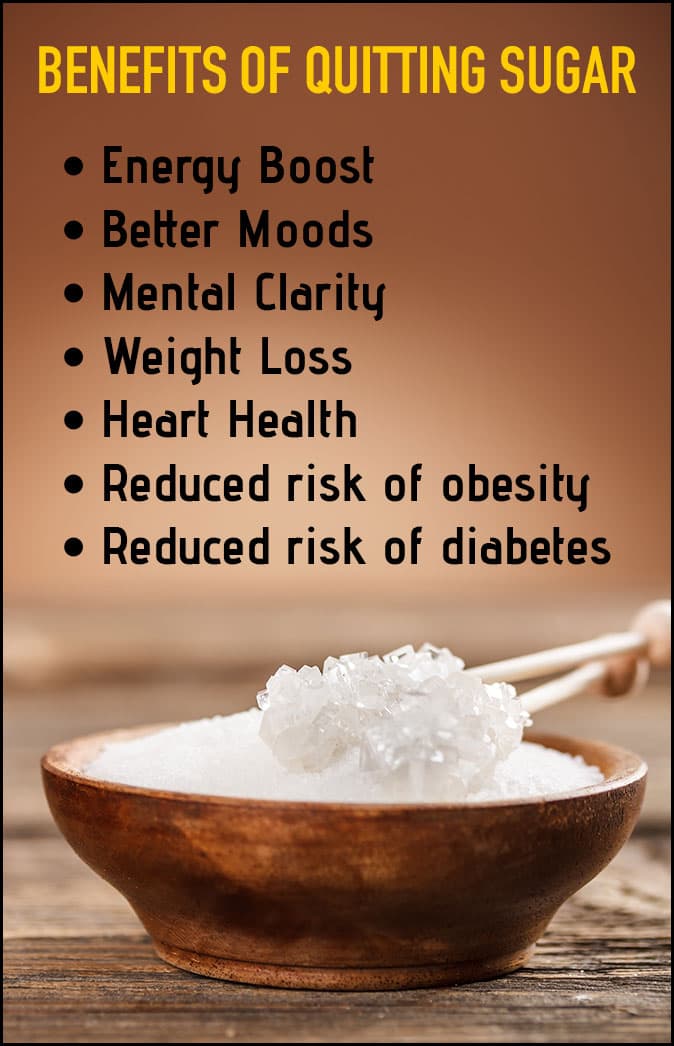Every journey needs a first step – that first course of action that sets a precedent for everything that comes after. Even though it’s cliché, it rings true in all aspects of life. Realizing that you should make healthier life choices is nothing special. However, acting on that realization and making the decision to get healthy is – especially when the decision is as big as going on the no sugar diet.
Sugar is quite the dilemma. You know it’s bad for you in certain forms and amounts but you just can’t bring yourself to swear off from it. Sugar is present in a lot of the natural things we consume, but unfortunately, it is the refined sugar present in a lot of processed food that is the villain of this story. This is the sugar that needs to be eliminated from everyone’s diet. So let’s take a look at the benefits of cutting out sugar.
Why Should You Cut Out Sugar and Go on the No Sugar Diet?
Refined sugar intake accounts for a lot of the lifestyle diseases people are suffering from today. The body needs no carbohydrates from the added sugar. As such, reducing the sugar intake or quitting it completely results in a healthier lifestyle.
Refined sugar is not easy to avoid, making the decision to quit sugar as hard as they come. It is in your favorite food and drinks meaning that a whole new diet and a lot of discipline would be required before enjoying any kind of success on this journey.
According to the American Heart Association (AHA):
- US adults consume about 77 grams of sugar each day. This is 3 times more than the recommended intake for women.
- US children consume about 81 grams per day, which adds up to over 65 pounds of added sugar each year. Keep in mind that 4 grams of sugar are equivalent to 1 teaspoon.
Of all the consumables, beverages lead the added sugar charts, accounting for 47% of all added sugars. Soft drinks lead the pack with 25%, with fruit drinks, coffee (or tea), and energy drinks coming in with 11%, 7%, and 3% respectively.
A study titled ‘Effects of Carbohydrates on Satiety: Differences Between Liquid and Solid Food’ found that carbohydrates in liquid form (such as added sugar beverages) give you a relatively less feeling of being ‘full’ than those in solid form. People taking these beverages, therefore, often continue to feel hungry even after drinking them even though they have a high caloric value.
On average, a can of sweetened fizzy or fruit drink has about 150 calories, with a bulk of these calories being from sugar usually in the form of high-fructose corn syrup.
Sugary snacks and sweets are not far off from beverages, contributing to 31% of added sugars.
To put all of this information into context, the AHA’s sugar intake recommendations are as follows:
- Adult men should consume a maximum of 9 teaspoons (about 36 grams or 150 calories) of added sugar per day.
- Adult women should consume a relatively lower amount – 6 teaspoons (about 25 grams or 100 calories) per day.
The National Institute of Health (NIH) estimates that for a US adult, 15% of their calorie intake comes from refined sugars alone. What is the effect of all this added sugar?
- A sharp increase in obesity, even at very early ages.
- High Blood Pressure
- Heart complications
- Type 2 Diabetes
- Cavities and other dental problems
- Liver complications
- Chronic inflammation
- High cholesterol
You would think that all this information would make sugar the most undesirable commodity possible but that could not be further from the truth. Lightly put, sugar is the thing that you hate to love but can’t help it. It’s just too good. However, there is another way of looking at it that explains the hold sugar has over millions of people.
Addiction to Sugar
Do you think you’re addicted to sugar? Is that why it is so hard to quit?
Studies have found that evidence that speaks to the addictive nature of sugar intake. They found some physiological and behavioral parallels that eerily resemble those that are experienced during drug addiction. A 2016 study on animals demonstrated brain developments akin to those experienced by nicotine addicts when exposed to high sugar quantities.
Sugar causes a release of dopamine and endorphins in the brain in a way similar to drugs of abuse. Endorphins are the body’s natural opioids – they increase the feeling of pleasure and well-being. Dopamine is a ‘chemical messenger’ that determines how you ‘feel pleasure’ as well as your ability to think and plan. It is part of the body’s reward system.
Once the body gets used to this feel-good high sugar gives you, you will most likely always want more.
Shared Characteristics between Sugar and Addictive Drugs
- Both sugar and addictive substances increase dopamine levels in the brain.
- Just like with drugs of abuse, it is easy to build up a tolerance to sugar over time, resulting to larger and more frequent intakes to achieve the same ‘feel-good’ state.
- After going without sugar for an extended period, most people tend to eat sugar in much larger amounts (binging) just like with drugs and alcohol.
- Both sugar and addictive substances cause cravings in the body. This causes you to go out of your way to get a ‘fix’.
- Cutting out sugar from your diet can lead to some withdrawal symptoms. This happens with drugs and alcohol.
However, unlike illegal substances, sugar is everywhere you look. It is much easier to obtain on every whim.
This is How You Can Cut Out Sugar Safely and Get on the No Sugar Diet
- Know what you consume
Put the information you have to good use. Read those product labels and skip anything with added sugars. Always try to find the best natural alternative.
- Take your time with it
You may not realize how much your body is dependent on sugar until you try to quit. For this reason, it is best to do it gradually. Do not go cold turkey as you will most likely end up binging sugar. Remove items with added sugar from your diet one by one while replacing them with natural offerings.
- Cut out the simple carbs
Avoid things like white rice, flour, and rice. Carbohydrates cause an increase in blood sugar levels because of how easily the body converts them to sugar.
- Avoid the beverages
Beverages account for a lot of excess sugar intake. Drink water instead.
- Natural, whole foods
The aim is to avoid processed foods. Go for vegetables, fruits, lean meats, and unprocessed grains.
- Plan your meals
Planning your meals ahead of time leaves no room for compromise. If you have a meal planned out, grabbing a sweet snack instead is out of the question.
The No Sugar Diet and Benefits of Cutting Out Sugar
- Self-pride
Succeeding where many others have failed is no mean feat. There’s a lot of pride in making a decision and sticking by it. The self-belief is enough to propel all other areas of your life.
- Energy boost
The highs that sugar gives are often followed by significant ‘crashes’ which leave you unwilling to do anything productive. By replacing sugar with natural energy sources like whole foods and grains, you get a consistent supply of ‘healthy’ energy.
- Better Moods and Mental clarity
The energy crashes experienced after sugar highs leave you tired, sluggish, and with imbalanced moods. Cutting sugar out repairs your eating habits and gives you a sharpness that can only be obtained by eating healthy.
- Get to your ideal weight
Those extra calories lead to extra pounds. A healthy diet can do just as much, if not more, than constant exercise. If you are targeting a certain weight, the best way to start is to get rid of the added sugar in your diet.
- Reduced risk of obesity and diabetes
A diet with lots of fast-digesting carbohydrates, like sugar, requires the pancreas to release lots of insulin, meal after meal, day after day. That excessive demand may overtax insulin-producing cells, causing them to malfunction, eventually leading to diabetes.
By cutting out sugar, you significantly reduce the risk.
- A healthy heart
What better benefit is there than to have a heart that is in great condition?
Common Sugar Withdrawal Symptoms
- Cravings
- A depressed feeling
- Muscle aches
- Headaches
- Nausea
- Bloating
- Irritability
- Anxiety
As the body gets used to not having its normal sugar intake, these mild symptoms gradually subside.
Feel Revived as You Recover
This is one journey you want to take, regardless of how difficult it appears to be. You will want to quit and the withdrawal might make you feel like you’re better off with the sugar. In such moments, think about the benefits you’re working for. Think of this as a test of your discipline and your resolve.
You will come out the side more energized than ever.















